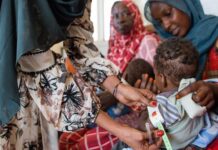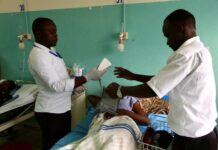Written By Lisa Murimi
The rapid spread of mpox, formerly known as monkeypox, across Africa has escalated into a global health emergency.
This declaration comes as a new form of the virus, Clade 1b, raises significant concerns, but many critical questions remain unanswered.
Is this strain more contagious or deadly? Is another pandemic on the horizon? The uncertainty is palpable.
The virus is not a textbook sexually transmitted infection. However, it is spread through close physical contact and sex obviously involves close contact.
The outbreak of this new Clade 1b offshoot looks markedly different to Clade 1a.
“It’s really different because the rash is more severe, the disease seems to be going on for longer, but most of all this is really being driven by sexual transmission and person-to-person contact and we haven’t seen any involvement with bushmeat at all,” Prof Trudi Lang, from the University of Oxford, told Radio 4’s Inside Health programme.
Dr. Jake Dunning, a scientist specializing in mpox, cautions against assuming this outbreak will mirror the COVID-19 pandemic or the mpox outbreak of 2022.
“We need to avoid the trap of thinking this is going to be Covid all over again,” he emphasizes.
The situation is complicated by the existence of three concurrent mpox outbreaks, each affecting different regions and populations.
Clade 1a is prevalent in western and northern Democratic Republic of Congo (DRC), Clade 1b is spreading rapidly along trucking routes in eastern DRC and neighboring countries, and Clade 2, the strain responsible for the 2022 global outbreak, continues to circulate.
The World Health Organization has highlighted Clade 1b as a major concern due to its rapid spread to previously unaffected countries, including Kenya and Uganda.
With over 500 deaths reported in the DRC this year alone, the urgency for a coordinated global response is undeniable.



















